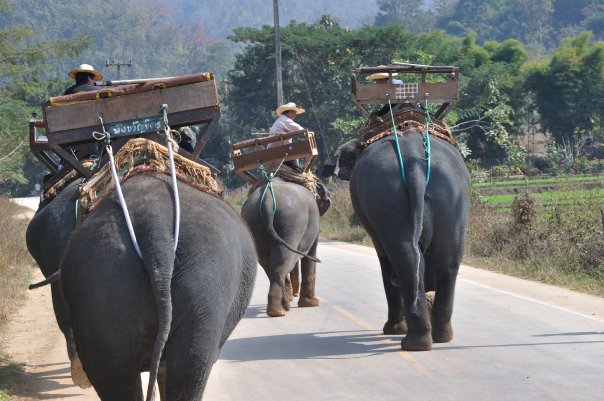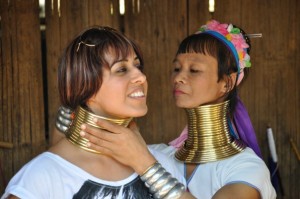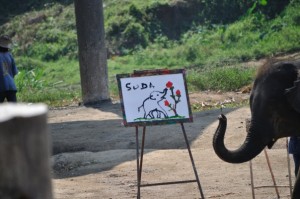
Funda=hindi slang for one’s fundamental principles.
“Define your values and explore your beliefs. Learn the economic, political and environmental context of your host culture. Seek to understand other cultures.” – Indie Travel Manifesto, Boots N All.
What’s your travel funda? I’m a Starbucks guzzling, H&M shopping, meat eating, city dwelling type of gal. I love to learn, read and educate myself on world issues and the host cultures I’ll be visiting, but in my day to day life I rarely incorporate a sustainable, local, eco-friendly type of lifestyle. Apart from recycling and buying local occasionally, I’m as non-green as it gets. So when I travel, animal and environmental activism and eco-friendly choices are lower on my priority list as compared to learning and understanding local cultures and customs. I focus on local arts, food, religion, people, and history, purchasing local handicrafts and staying in local accommodations when possible in addition to using my five senses for an experiental cultural education I can’t get in the classroom.

Sometimes I feel guilty about my choices and think I should be a more responsible global citizen and more vocal about issues such as the environment, animal cruelty, zoos for tourism, ‘human safaris’ and slum tours or the degradation of the Amazon rainforest, but I don’t actively take on these issues when I’m at home, why would I abroad? I’d be a hypocrite.

After recently attending a G Adventures talk on the Future of Tourism it was reiterated that sustainable tourism is about creating a movement, being informed about the issues around you and knowing where your money goes, but doing what you believe in, whether it’s sustainable tourism, cultural tourism, ethical tourism, etc. Educate yourself on both sides of the story – not all animals should roam free; voluntourism can sometimes be more about satisfying volunteer needs rather than what’s good for the local culture and slum tours that employ local children to educate foreigners may not be so bad after all. Do what you believe in and most importantly – ask questions.
For me, I’m okay with taking pictures with orangutans, petting a tiger in a zoo cage and riding an elephant. In Thailand, I watched an elephant trained to paint – and have recently read in Culture-ist Magazine how abstract art may save Thailand’s elephants. My focus is on experiential education. Your travel style and values may be different than mine and that’s okay.

Here are some definitions of buzz words under the category of Responsible Tourism so you can make the right choice for you:
Ethical Tourism: “Ethical tourism has evolved as a term when one considers travelling to, or developing tourism in a destination where ethical issues are the key driver, e.g. social injustice, human rights, animal welfare or the environment. Ethical tourism is geared towards encouraging both the consumer and industry to avoid participation in activities that contribute or support negative ethical issues.” – Institute for Tourism Croatia
Sustainable Tourism: “Tourism that takes full account of its current and future economic, social and environmental impacts, addressing the needs of visitors, the industry, the environment and host communities” – World Tourism Organization
Responsible Tourism: “Responsible tourism and sustainable tourism have an identical goal, that of sustainable development. The pillars of responsible tourism are therefore the same as those of sustainable tourism – environmental integrity, social justice and maximising local economic benefit. The major difference between the two is that, in responsible tourism, individuals, organisations and businesses are asked to take responsibility for their actions and the impacts of their actions.” – Wikipedia
Eco-Tourism: “Ecotourism is a form of tourism involving visiting fragile, pristine, and relatively undisturbed natural areas, intended as a low-impact and often small scale alternative to standard commercial (mass) tourism. Its purpose may be to educate the traveller, to provide funds for ecological conservation, to directly benefit the economic development and political empowerment of local communities, or to foster respect for different cultures and for human rights.” – Wikipedia
Agri-Tourism: “Involves any agriculturally-based operation or activity that brings visitors to a farm or ranch. Agritourism has different definitions in different parts of the world, and sometimes refers specifically to farm stays, as in Italy. Elsewhere, agritourism includes a wide variety of activities, including buying produce direct from a farm stand, navigating a corn maze, picking fruit, feeding animals, or staying at a B&B on a farm. Agritourism overlaps with geotourism, ecotourism, wine tourism and culinary tourism.” – Wikipedia
Green Tourism: “Historically the definition of this term has been travel which is environmentally friendly or benign that in general does not concern itself with cultural or economic elements of the destination. Current uses of the term are becoming broader to incorporate full sustainable tourism principles.” – Institute of Tourism Croatia
Volun-Tourism: “…is travel which includes volunteering for a charitable cause. In recent years, “bite-sized” volunteer vacations have grown in popularity. Volunteer vacations vary widely in scope, from low-skill work cleaning up local wildlife areas to providing high-skill medical aid in a foreign country. Volunteer vacations participants are diverse but typically share a desire to “do something good” while also experiencing new places and challenges in locales they might not otherwise visit.
Much of the conflict regarding volunteer tourism is that these trips are not sustainable. There will always be groups who want to partner with international organizations and individuals who desire to spend their free time helping others, but the trips and projects these people choose should focus on development that both involves the locals directly and caters to their most important needs.” – Wikipedia
Cultural Tourism: “…is the subset of tourism concerned with a country or region’s culture, specifically the lifestyle of the people in those areas, the history of those people, their art, architecture, religion(s), and other elements that helped shape their way of life. Cultural tourism includes tourism in urban areas, particularly historic or large cities and their cultural facilities such as museums and theatres. It can also include tourism in rural areas showcasing the traditions of indigenous cultural communities (i.e. festivals, rituals), and their values and lifestyle.”
“While satisfying tourists’ interests and demands may be a top priority, it is also imperative to ruminate the subsystems of the destination’s (residents). Development pressures should be anticipated and set to their minimum level so as to conserve the area’s resources and prevent a saturation of the destination as to not abuse the product and the residents correspondingly. The plan should incorporate the locals to its gain by training and employing them and in the process encourage them to participate to the travel business. Keep in mind that the plan should make travellers not only aware about the destination but also concern on how to help it sustain its character while broadening their travelling experience.” – Wikipedia
Additional Reading Material: Responsible Tourist Guidelines based on Global Code of Ethics for Tourism of the World Tourism Organization
Should there be so many labels? What are your thoughts on this type of travel? Can you be sustainable if you’re on a short term trip versus a long term trip?
